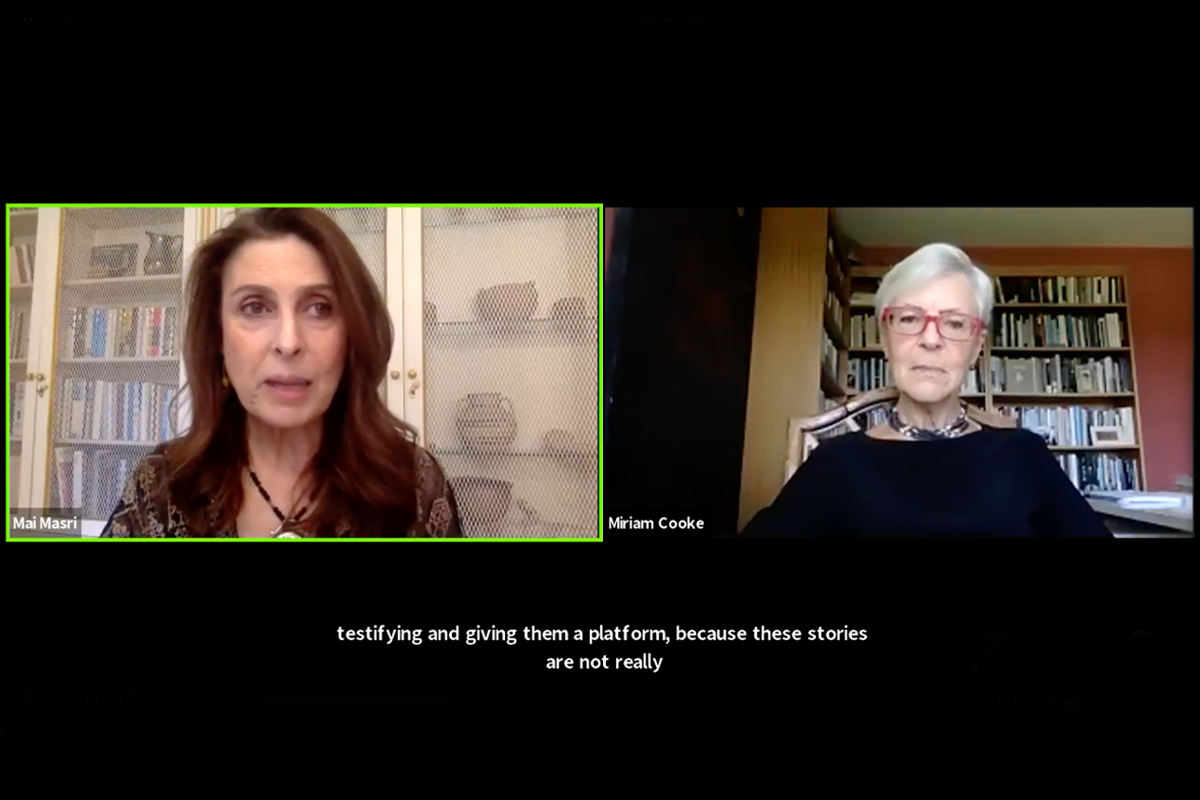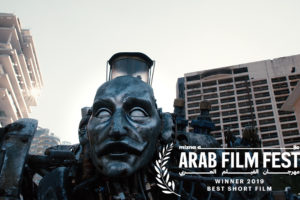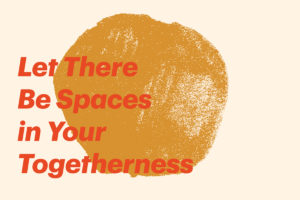
Filmmaker Discussion: Mai Masri In Conversation with Miriam Cooke
Mizna is presents a discussion between renowned filmmaker Mai Masri and scholar Miriam Cooke. Masri and Cooke will discuss Suspended Dreams, directed in 1992 by Masri and her late husband Jean Chamoun, as well as Masri’s filmography, which focuses on the real life struggles of the women and children living in the Occupied Palestinian and Lebanon.
This virtual discussion took place as part of the Mizna Film Series on Saturday, August 28.
Encountering the real effects of destruction, the films presented in Mizna Film Series: Beirut complicate the relationship between fact and fiction, using poetry and other forms of intermediality to witness what emerges from ruins. Beirut, a city that has often been the site of sectarian, colonialist, and imperialist violence, is a context which produces films that critically engage with images related to moments during, between, and after war and upheaval. In August, we present a selection titled Post/Protracted Civil War which features films by Mai Masri and Jean Chamoun, Jalal Toufic and Graziella Rizkallah Toufic, and Ghassan Salhab. In September, Mizna will screen Birds of September by Sarah Francis.
ABOUT THE PARTICIPANTS
Mai Masri is a Beirut-based Palestinian filmmaker who studied film at San Francisco State University. She founded Nour Productions with her husband, Jean Chamoun, and directed several award-winning films that focus on the humanity and resilience of ordinary people living through extraordinary times. Mai’s debut feature 3000 Nights (2015) was premiered at Toronto International Film Festival, and won over 28 international awards. Her filmography includes: Under the Rubble(1983), Wildflowers (1986), War Generation – Beirut (1989), Children of Fire (1990), Suspended Dreams (1992), Hanan Ashrawi (1995), Children of Shatila (1998), Frontiers of Dreams and Fears(2001), Beirut Diaries (2006), 33 Days (2007), and Beirut Eye of the Storm (2021).
Miriam Cooke is a professor of modern Arabic literature and culture at Duke University. Her writings have focused on the intersection of gender and war in modern Arabic literature and on Arab women writers’ constructions of Islamic feminism. Her more recent interests have turned to Arab cultural studies with a concentration on Syria, and to the networked connections among Arabs and Muslims around the world. She is the author of several monographs, including “War’s Other Voices: Women Writers on the Lebanese Civil War” (Cambridge 1988); her latest book dealing with the Art of Syrian Revolution 2011 – 2016 is entitled Dancing in Damascus: Creativity, Resilience, and the Syrian Revolution [Routledge 2016].










